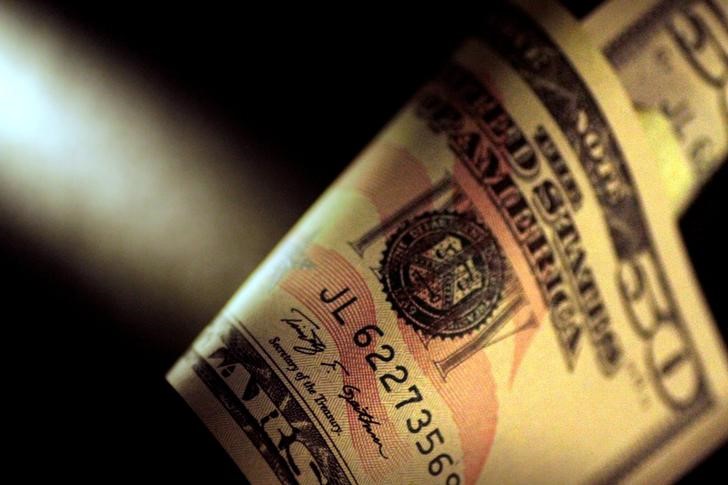 © Reuters.
© Reuters.
By Peter Nurse
Investing.com - The U.S. dollar edged lower in early European trade Monday, handing back some of last week’s gains at the start of a week dominated by central bank meetings.
At 3:10 AM ET (0810 GMT), the Dollar Index, which tracks the greenback against a basket of six other currencies, edged 0.2% lower to 97.035, retreating from Friday's 18-month peak of 97.441.
EUR/USD rose 0.2% to 1.1166, having fallen to 1.1119 on Friday, its weakest since June 2020. USD/JPY rose 0.2% to 115.41, GBP/USD rose 0.1% to 1.3422 and the risk-sensitive AUD/USD soared 0.6% to 0.7031, after falling to its lowest since July 2020 on Friday.
Traders are banking some profits Monday after the dollar had its best week in seven months on the back of comments from Fed Chairman Jerome Powell which suggested the U.S. central bank was looking at more interest hikes this year than the three that had previously been factored in.
“Because of strong growth, elevated inflation, and a tight labour market, we now expect six rate hikes in 2022 of 25bp each instead of four, to be followed by four further such hikes in 2023 and one move in 2024,” said analysts at Berenberg, in a note.
Despite Monday’s weakness, the dollar can extend its rally until after the Federal Reserve starts raising interest rates, according to JPMorgan Chase.
“The market is still going to be in some sort of price discovery mode,” and “typically the peak of the dollar comes about one to two months after Fed liftoff,” said Daniel Hui, executive director of global FX strategy at JPMorgan (NYSE:JPM) Securities, said in an interview with Bloomberg Television.
Still, the focus this week is set to shift a little away from the Federal Reserve, with central bank policy-setting meetings due in Australia, the U.K. and the Eurozone in the days ahead.
The Reserve Bank of Australia meets on Tuesday amid rising expectations that it will take another step towards policy normalization, potentially by announcing an end to its quantitative easing program.
The Bank of England and the European Central Bank are both set to meet on Thursday, but with likely different results. While the ECB is seen delivering no policy change, the BOE is widely expected to hike interest rates for the second time in less than two months, after inflation jumped to its highest in nearly 30 years.
“Presumably the inflation forecast will be revised a lot higher and the market will be interested in reading whether the BoE still feels CPI will be above the 2% target in 2-3 years’ time – even with all the tightening priced in,” said analysts at ING, in a note.

